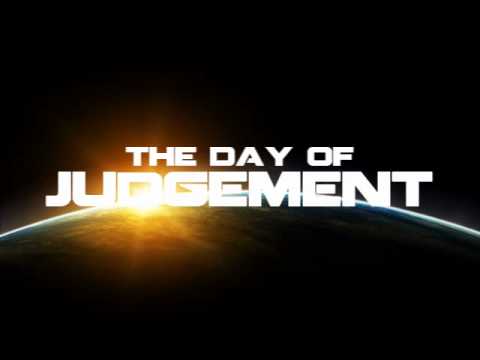 judgment,
judgment,  judgment day
judgment day  Thursday, August 13, 2015 at 11:21AM
Thursday, August 13, 2015 at 11:21AM  The only people looking forward to Judgment Day are the crazy people, right? Perhaps it depends on how well you know the Judge. Our popular notions of Judgment Day—and God’s judgment—are filled with apocalyptic trembling: floods, earthquakes, fire and brimstone. God’s coming back, and he’s angry! Jesus, too: he came to seek and save the lost, but that was the first time—watch out for his second time around. It doesn't quite add up, does it?
The only people looking forward to Judgment Day are the crazy people, right? Perhaps it depends on how well you know the Judge. Our popular notions of Judgment Day—and God’s judgment—are filled with apocalyptic trembling: floods, earthquakes, fire and brimstone. God’s coming back, and he’s angry! Jesus, too: he came to seek and save the lost, but that was the first time—watch out for his second time around. It doesn't quite add up, does it?
It has not always been so, nor is it even so everywhere today. The oppressed cry out for deliverance because the Day of Judgment brings the Deliverer. In C.S. Lewis’ The Lion, The Witch, and The Wardrobe, the creatures of Narnia comfort themselves with the chant,
Wrong will become right, when Aslan comes in sight.
At the sound of his roar, sorrows will be no more
When he bares his teeth, winter meets its death
And when he shakes his mane, we shall have spring again.
Nor did Lewis create this hope. He got it from the Old Testament prophets, who eagerly awaited “the great and terrible day of the Lord.” Even the religious folk in Jesus’ day yearned for the deliverance of God, even if it was for the wrong reasons.
And what about you? Is the return of Jesus an event to be feared, celebrated, or both? And most importantly: why do you feel the way you do? Since I asked you, I should probably share my biases with you up front. I have at least three:
There is a Judge, and there is justice. Our modern values resist these very ideas. We see the guilty go free. We watch the poor suffer. Westerners decry a CEO’s lavish compensation as “unfair” even while we ourselves live like first world kings, oblivious toward third world realities. We are daily tempted toward cynicism and hopelessness. People of faith should know better. Abraham, the father faith, argued with God asking, “Will not the Judge of all the earth do right?” Abraham cried mercy over Sodom and Gomorrah, because he trusted in the God’s judgment. Human history has a destination, and at the end of the road there sits a Judge.
I trust the Judge. Our workaday images of courtrooms and judges are cluttered with foolish legal distinctions, human drama, and corruption. The Great Judge is nothing like our childish games. In that day, when God puts on the robes of judgment, our opinions of law and justice will be seen for the pale imitations of small minds that they are. There’s no getting around it, the Creator of the Universe is the Great Judge of all humanity, and all human history. He not only has the right and the power to be judge, he has the knowledge and wisdom as well.
Mercy triumphs over judgment. I trust the Judge because the only Person in the universe with a true right to judge is the same One who also longs to say, "Well done, Good and faithful servant, enter into the joy of your Master." What’s more, it’s within my reach to be like Him and show mercy. When we display humility, kindness, and mercy, we reflect God’s image. The Judge loves mercy; it’s his default position. If the Old Testament could be said to have a mantra, it might be “His loving kindness endures forever.” The very Hebrew word for loving kindness, chesed, has been rendered as love, faithful love, loving kindness, mercy, grace, and compassion. Why choose? I think chesed can mean all of them at once.
These are my biases. And convinced as I am that God is deeply, powerfully good, I yet shudder at the notion of my personal moments before the Judge, and the great and terrible day of the Lord, whenever it may come.
Aslan will indeed set things right; yet it will shake the very foundations of our fallen world. I look forward to judgment as I might look forward to serious surgery: a necessary goodness that still causes me to tremble. In the end, all I can do is trust the Great Physician.
Why not receive Students of Jesus in your inbox? Subscribe to our email newsletter and never miss a post.
 Thursday, November 3, 2011 at 12:09AM
Thursday, November 3, 2011 at 12:09AM